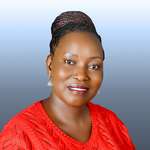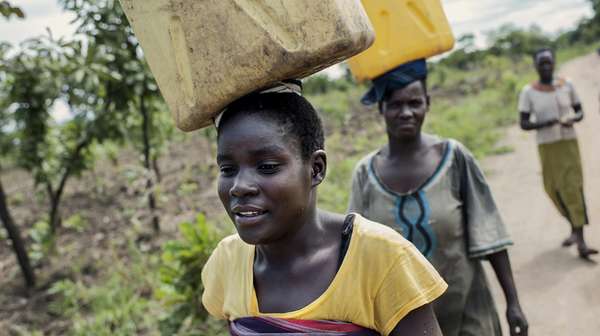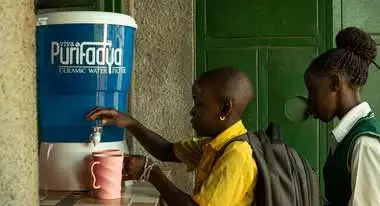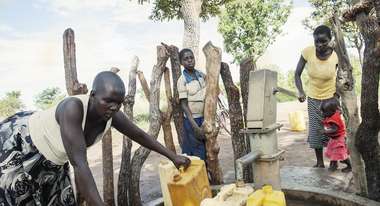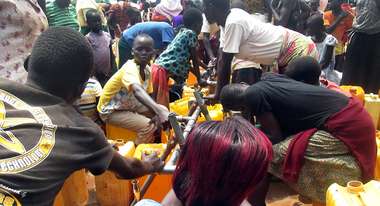Access to clean water is a human right. Nevertheless, many people are denied it.
Water Expert Harriet Agemo: "I want to make a difference"
Harriet Agemo has been working in the Welthungerhilfe team in Uganda for eleven years, currently as a project manager for water, sanitation and hygiene (WASH) in the Teso and Karamoja regions in the east of the country. She talks about her tasks and why she chose this job.
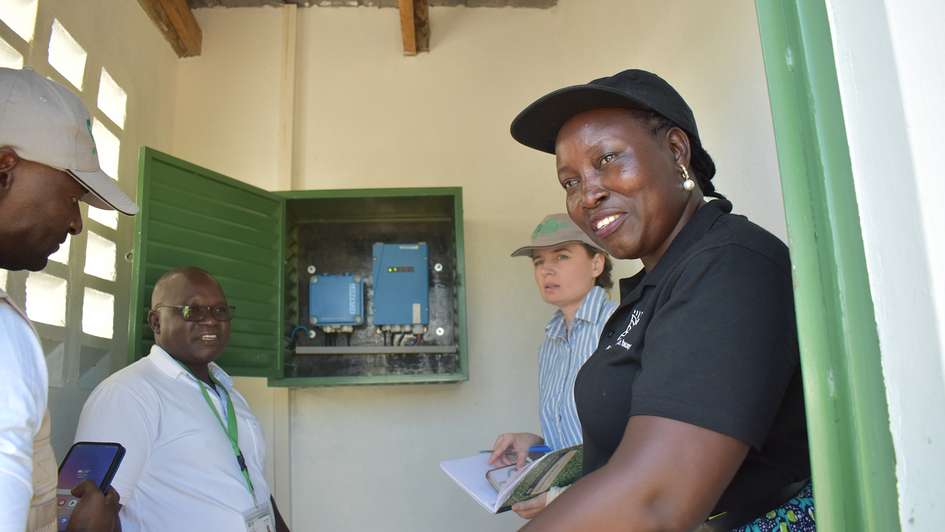
I started working for Welthungerhilfe as a programme development officer. It was a job I really liked, but it was almost entirely desk-based. Unfortunately, this meant that I had limited time in the field, which was and still is very important to me. So I enrolled in various courses to be able to do other things.
Growing up in the countryside with my grandparents, I saw first-hand how limited communities' access to water and sanitation was. My grandmother and other female family members made sure there was water in the house. But there was no water point in our village of over 200 households. The women, including us little girls, had to walk long distances to fetch water from two neighboring villages. I remember how the women in my family often went to the water point at two o'clock in the morning when there were only a few people there and didn't return with the water until seven in the morning.
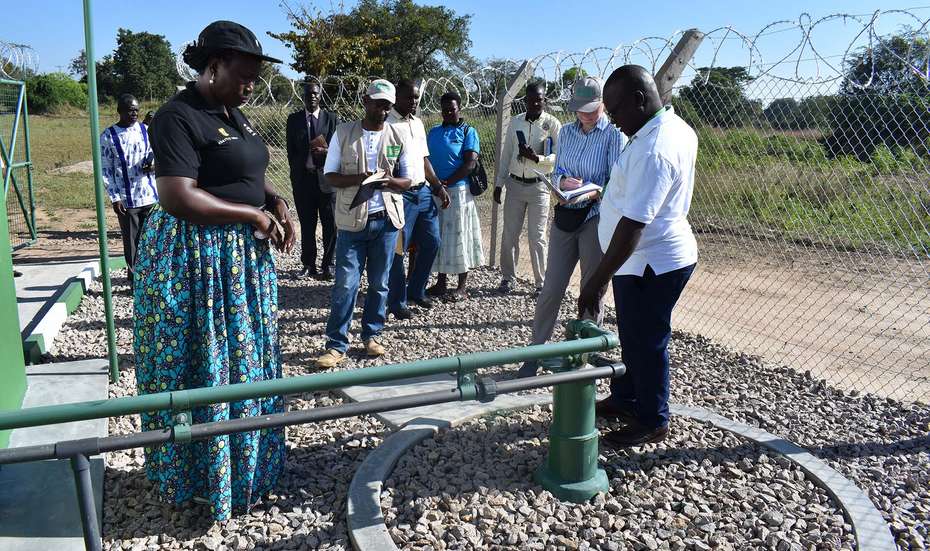
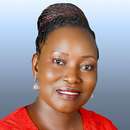
I dream that one day there will be a water point in my village for my family and all the others.
Harriet Agemo is a WASH expert for Welthungerhilfe in UgandaEven as a young girl, I wanted to change this situation. That was one of my motivations to work for the WASH sector through enrollment in various WASH related trainings and mentoring sessions as well as focusing on WASH sector. In my work today, it is an advantage to be able to empathise with life in rural areas, where access to water and good sanitation is a major problem. I can use my experience to talk to communities about their participation in change.
Improving the lives of the rural population
My work is very varied; I help plan and implement projects, monitor progress, and promote networking between WHH and other organizations and local governments in Uganda. I have gained more and more expertise and am developing WASH within our organisation, drafting guidelines and recommendations, and disseminating them to various stakeholders at national and local level. Last November, the country director of Welthungerhilfe, a colleague and I were invited by the Vice President of Uganda, Jessica Alupo. She expressed her great appreciation for our work, which really motivated us.
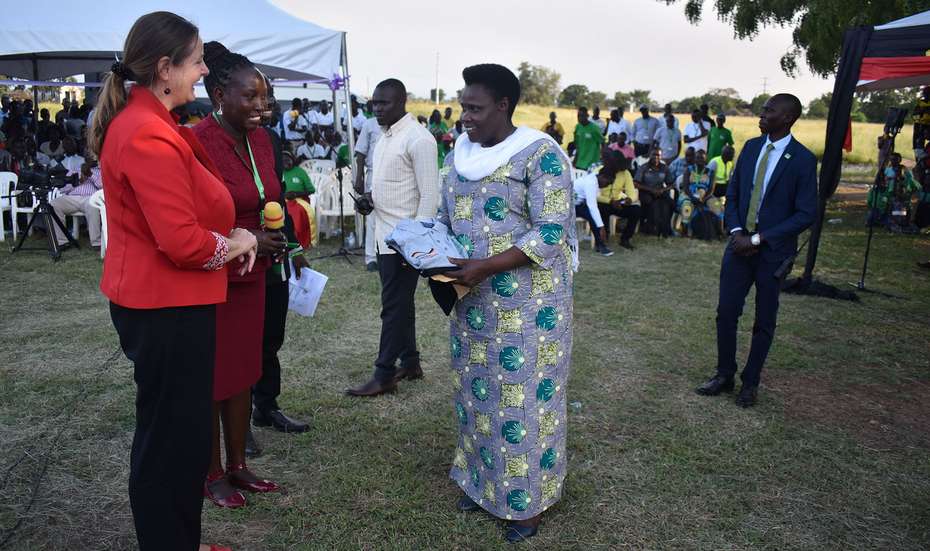
My work is fulfilling because I see time and again how the lives of the rural population have improved in so many ways. Clean hands are one of the most important ways to prevent disease. Washing hands with soap removes germs, which helps prevent infections - people often touch their eyes, nose and mouth without realizing it. When we talk to health workers in our project areas, they tell us that there are now far fewer cases of diseases transmitted through contaminated water.
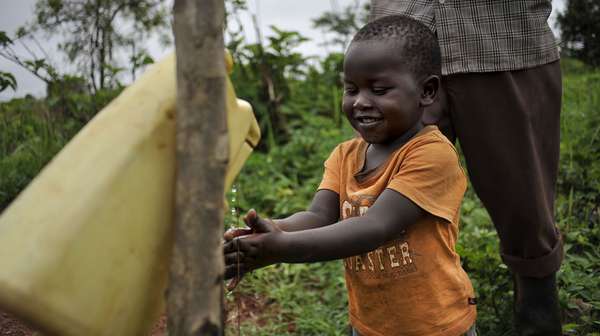
Your donation creates prospects.
But the impact goes much further. When water is brought closer to the community, women and girls no longer have to walk miles every day, and they have more time for other activities such as house chores, farming or other income-generating activities. In the schools where we work, there is a clear difference to those not reached by the programme. Both girls and boys are more confident and much more likely to say they have adequate hygiene and sanitation.
Where there is water and adequate sanitation, children participate more actively in school, and girls spend more time at school than at home, especially during menstruation. I believe that the future of these girls is being shaped by the presence of water in their schools.
Even simple measures can have a big impact
We also support community health clubs, whose members promote hygiene in their area. They identify challenges in sanitation and hygiene and collectively develop action points such as teaching villagers how to store water safely, build safe sanitation facilities, and teach children to wash their hands thoroughly. Sometimes it's the simplest things that make the biggest difference.
I come from a district where water is very scarce, there are few water points, and it is difficult to drill wells. I dream that one day there will be a water point in my village for my family and everyone else. Through my work, I have gained a lot of experience in understanding and finding solutions to the problems of surveying and drilling wells, as well as water management. I will use this knowledge to help my community. I sincerely hope to see the same positive developments there as in the projects I implement with my team.




